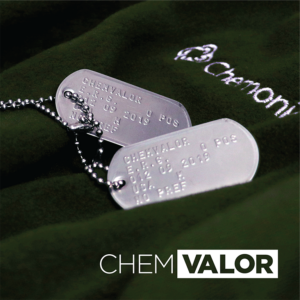
3 Questions with Military Veteran Alex Gibson on Pursuing a Civilian Career with Chemonics
May 4, 2023 | 4 Minute ReadChemonics’ Alex Gibson shares the how and why of pursuing a civilian career in international development.

At Chemonics, we seek out and value the knowledge, skills, and experience veteran talent can contribute to our mission to promote meaningful change around the world to help people live healthier, more productive, and more independent lives.
In 2011, Alex Gibson enlisted as a radio specialist in the Michigan Army National Guard, supporting tactical communication readiness for domestic and foreign missions. Alex was awarded the title of Michigan’s Soldier of the Year in 2013 for his performance in a state-wide soldier skills competition. Upon graduating from Western Michigan University, Alex was commissioned as an active-duty army intelligence officer and served with the 10th Mountain Light Infantry Division, with whom he deployed to Afghanistan. After separating from active duty in 2020, Alex briefly worked in refugee resettlement and is now a Master of Science in foreign service candidate at Georgetown University and a senior associate at Chemonics.
1. What skills did you obtain in the military that are applicable to international development/Chemonics?
At face value, I could see how military service and international development seem to be unrelated career paths. However, so many of the soft and hard skills that the military taught me directly apply to international development. As a military intelligence officer, I was expected to provide written analysis and oral briefings in dynamic and austere environments. Providing a clear picture to a commanding officer requires synthesizing analysis based on engagements with local partners, academic research, and subject matter experts. In Chemonics’ Peace, Stability, and Transitions practice, I leverage the same approach when our team conducts conflict sensitivity analysis. Our team ensures we critically think about the second- and third-order implications of our programs to ensure we’re providing long-term, meaningful reform.
Chemonics has valued my perspectives and experiences starting from the first day of my internship. My team and leadership valued my time management, interpersonal communication skills, and continuous desire to learn. Despite my lack of development experience, they valued the unique perspectives I brought into analysis and decision-making processes.
2. Why pursue a career in international development and how would you recommend other veterans get involved?
Many service members, including myself, believe public service and service to others are significant driving forces behind joining the military. When I separated from the military, I struggled to find a career path or industry where I felt like I was making a difference. Working at Chemonics has provided me with an opportunity to play a small part in serving global communities and promoting lasting change.
Initially, I had a narrow understanding of international development. The more I researched career opportunities I began to realize that development ranges from improving economic livelihoods to promoting locally led conflict mediation, education programs, healthcare services, and more. Like the military, the international development field’s diverse array of career paths and opportunities to work abroad appealed to me the most.
3. You started with Chemonics as an intern. How did you hear about this career path and what made you decide Chemonics was the place for you after your internship program? What made you decide to pursue a full-time role with Chemonics?
I met a good friend, former Chemonics employee, and fellow veteran in graduate school who raved about his experience at Chemonics. He understood my desire to find a meaningful career path after graduation and educated me about international development. He encouraged me to apply to the Chemonics internship program that led to my current role.
From my first day as an intern, my team empowered me to think critically and integrate myself into our work priorities as they would a new associate. I immediately felt like I was providing valuable contributions to the organization while simultaneously being provided with mentorship and guidance to ensure I had the tools I needed to succeed. The flexible and collaborative environment, professional development opportunities, and, most importantly, the people motivated me to stay with Chemonics.
Separating from the military can be an incredibly intimidating process, and it can be difficult to think your skills could transfer to the field of international development – but they do. Companies like Chemonics need folks who are mission-oriented and have experience with planning and logistics, interpersonal communication, leadership experience in austere and dynamic environments, and so much more. All of these skills are taught and continually refined in the military. Not only are you qualified to work at a company like Chemonics, but you also have the experience to make yourself an invaluable member of the team.

Are you a veteran interested in learning more about Chemonics? Please reach out to veterans@chemonics and visit the Chemonics U.S. Military Veterans page.
